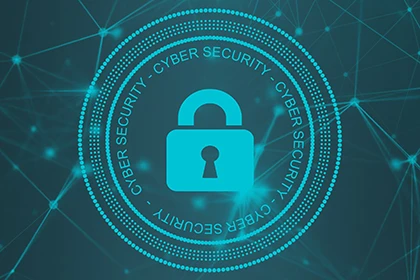In today’s digital age, online transactions and data safety are top priorities. With cyber threats becoming more sophisticated, ensuring the security of your website is crucial. But how can you communicate this commitment to your customers? Enter the cyber security seal—a small yet mighty badge that can significantly impact your business. Whether you’re an IT professional, run an e-commerce site, or manage a small business, understanding the benefits of a cyber security seal is essential.
This blog will guide you through what a cyber security seal is, its importance, and how it can enhance your website security and customer trust. We’ll also cover practical steps to obtain and display a cyber security seal on your site. By the end of this post, you’ll understand why incorporating a cyber security seal into your website strategy is brilliant. Let’s get started!
What is a Cyber Security Seal?
A cyber security seal is a badge displayed on a website that signifies the site has met specific security standards. A trusted third-party security company provides this seal after conducting thorough checks and assessments. It serves as a visual assurance to visitors that their data is protected while interacting with the site.
The cyber security seal can come in various forms, such as SSL certificates, TRUSTe certifications, and Norton Secured seals. Each type offers different levels of security validation, from basic encryption to comprehensive site security audits. Understanding these differences can help you choose the proper seal for your website.
Having a cyber security seal enhances your site’s credibility and boosts customer confidence. Users who see a security seal are more likely to trust the site with their personal and financial information. This trust can translate into higher conversion rates and customer loyalty.
Enhancing Website Security
Website security is paramount in protecting sensitive data from cyber threats. A cyber security seal is vital in fortifying your site’s defenses. By meeting the security standards to obtain the seal, you ensure your website is less vulnerable to attacks.
Regular security audits are vital to maintaining website security. They identify potential vulnerabilities and recommend necessary improvements. A cyber security seal provider typically includes these audits as part of its service, ensuring your site stays secure and up-to-date.
Implementing robust encryption protocols is another essential aspect of website security. An SSL certificate, for instance, encrypts data transmitted between the user’s browser and your server, making it difficult for hackers to intercept sensitive information. Displaying an SSL certificate seal informs users that their data is safe during transmission.
Boosting Customer Trust
Customer trust is crucial for the success of any online business. A cyber security seal is a powerful tool in building and maintaining that trust. Customers feel reassured that their data is safe when they see a security seal, increasing their willingness to complete transactions on your site.
Trust signals, such as cyber security seals, also influence customer perceptions. According to a GlobalSign survey, 84% of users would abandon a purchase if they encountered an unsecured website. Displaying a security seal can mitigate this risk by providing visible proof of your commitment to security.
Furthermore, a cyber security seal can enhance your brand’s reputation. In a competitive market, businesses prioritizing security stand out from the rest. By displaying a trusted security seal, you signal customers that you value their safety, fostering long-term loyalty and positive word-of-mouth.
The Impact on E-commerce Sites
E-commerce sites are prime targets for cybercriminals due to the wealth of financial and personal data they handle. A cyber security seal is especially beneficial for e-commerce businesses, as it addresses critical security concerns and builds customer confidence.
One of the primary benefits of a cyber security seal for e-commerce sites is increased conversion rates. When customers feel secure, they are more likely to complete their purchases. Studies have shown that sites with security seals experience higher sales and reduced cart abandonment rates.
A cyber security seal can also help e-commerce sites comply with industry regulations. Many payment gateways and e-commerce platforms require merchants to adhere to strict security standards. Obtaining a cyber security seal ensures your site meets these requirements, avoiding potential fines and penalties.
Strengthening Small Business Security
Small businesses often need more resources to implement robust cybersecurity measures. However, a cyber security seal can level the playing field by providing an affordable and effective way to enhance security and build trust.
Small businesses need cost-effective security solutions. Many cyber security seal providers offer services tailored to their needs and budgets. These services include security assessments, SSL certificates, and continuous monitoring to protect against emerging threats.
By displaying a cyber security seal, small businesses can differentiate themselves from competitors. In an era where consumers are increasingly concerned about online security, a visible commitment to safeguarding their data can give small businesses a competitive edge.
The Role of IT Professionals
IT professionals play a critical role in implementing and maintaining website security. Understanding the importance of a cyber security seal and how to integrate it into a site’s security framework is a crucial aspect of their responsibilities.
Conducting thorough security assessments is the first step in obtaining a cyber security seal. IT professionals should work with trusted third-party providers to evaluate their site’s security posture and identify areas for improvement. This collaboration ensures the site meets the necessary standards for certification.
Once the cyber security seal is obtained, IT professionals must continuously monitor and update security measures. Cyber threats constantly evolve, and staying ahead of potential vulnerabilities is crucial. Regular security audits, updates, and employee training are essential to a robust security strategy.
How to Obtain a Cyber Security Seal
Obtaining a cyber security seal involves several steps, starting with choosing a reputable provider. Research different providers and their offerings to find one that aligns with your security needs and budget.
Next, undergo a security assessment conducted by the chosen provider. This assessment will evaluate your site’s security measures and identify any vulnerabilities. Based on the results, implement the recommended improvements to meet security standards.
Once your site meets the required standards, the provider will issue the cyber security seal. Display this seal prominently on your website to inform visitors of your commitment to security. Remember to maintain security measures and undergo regular assessments to keep the seal valid.
Common Types of Cyber Security Seals
There are several types of cyber security seals, each offering different levels of security validation. Understanding these types can help you choose the proper seal for your website.
SSL certificates are one of the most common types of security seals. They encrypt data transmitted between the user’s browser and your server, ensuring secure communication. SSL certificates are essential for any website handling sensitive information, such as login credentials and payment details.
TRUSTe certifications focus on privacy and data protection. These certifications verify that your site complies with privacy regulations and follows best practices for data handling. Displaying a TRUSTe seal reassures visitors that their personal information is treated carefully.
Symantec provides Norton Secured seals, indicating that your site has passed rigorous security checks. Many users recognize and trust these seals, making them a valuable addition to your website.
Best Practices for Displaying a Cyber Security Seal
Effectively displaying a cyber security seal is crucial to maximizing its benefits. Place the seal in prominent locations where visitors will likely notice it, such as the homepage, checkout pages, and footer.
Ensure the seal is linked to a verification page provided by the security company. This page should detail the security measures and confirm the seal’s authenticity. Providing this additional information enhances transparency and builds trust with your visitors.
Regularly update the security measures and renew the seal as needed. Expired or outdated seals can create doubts about your site’s security, undermining the trust you’ve built with your customers.
Case Studies: Success Stories with Cyber Security Seals
Many businesses have experienced significant benefits from displaying cyber security seals on their websites. These success stories highlight the positive impact of enhanced security and increased customer trust.
For example, an e-commerce site specializing in handmade crafts saw a 20% increase in sales after obtaining an SSL certificate and displaying the corresponding seal. Customers reported feeling more secure during checkout, leading to higher conversion rates.
Another case involved a small business offering online courses. By displaying a TRUSTe certification, the company was able to reassure customers about the privacy and security of their data. This resulted in increased enrollment and positive customer feedback.
The Future of Cyber Security Seals
The cybersecurity landscape and the standards and technologies behind cybersecurity seals are constantly evolving. Staying informed about these changes can help businesses adapt and continue to protect their sites effectively.
Emerging technologies like artificial intelligence and machine learning are being integrated into security assessments and monitoring. These advancements offer more accurate and efficient ways to detect and mitigate threats, enhancing the value of cyber security seals.
Regulatory changes also significantly shape the future of cybersecurity. Businesses must stay updated on new regulations and ensure their security measures comply with the latest standards. Obtaining and maintaining a cyber security seal can help companies to meet these requirements and avoid potential penalties.
Conclusion
A cyber security seal is more than just a badge on your website; it’s a powerful tool that enhances security, builds customer trust, and sets your business apart from the competition. By understanding the importance of cyber security seals and following best practices for obtaining and displaying them, you can protect your site and foster lasting customer relationships.
Ready to enhance your website security and gain your customers’ trust? Start by exploring reputable cyber security seal providers and undergoing a thorough security assessment. Remember, a secure website is a necessity and a competitive advantage in today’s digital landscape.


